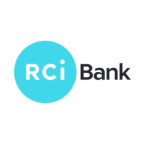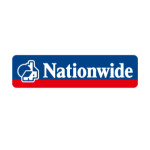Best 1 Year Fixed Rate Bonds
Best 1 Year Fixed Rate Bonds In October 2023
With 1 year fixed rate bonds, you lock your money away for 12 months and get a guaranteed fixed interest rate.
Here is a round-up of some of the best 1 year savings deals on the market:
Our Top 5 Deals |
||
|---|---|---|
 | 5.95% AER Deposit from £1 Features: 1 Year Fixed Rate Bond. Interest paid at maturity. Deposit up to £500,000 for single name accounts of £1m for joint names. | Go to Website » |
Must be aged 16 or older and UK resident. Open in single or joint names. FSCS protected. |
||
 | 5.85% AER Deposit from £1 Features: 1 Year Fixed Rate Bond. Interest paid at maturity. Deposit up to £250,000. | Go to Website » |
Must be aged 18 or older and UK resident. Open in single or joint names. FSCS protected. |
||
| 5.80% AER Deposit from £5,000 Features: A Market Leading 1 Year Fixed Rate Bond. Interest paid at maturity. Deposit up to £250,000. Apply in minutes | Go to Website » | |
Apply in minutes. Must be aged 18 or older. Have a UK residential address. Single account option only. FSCS protected. |
||
| 5.80% AER Deposit from £1,000 Features: Interest paid at maturity or you can opt to have interest paid monthly (5.65% Gross). Deposit up to £1m. | Go to Website » | |
Must be 18 or older and resident in the UK. Joint account option. FSCS protected. |
||
| 5.70% AER Deposit from £1,000 Features: Interest paid monthly (4.65% AER) or annually (5.56% AER). Open in single or joint name. Deposit up to £1m. UK based support | Go to Website » | |
Must be aged 18 or older. You will need to have a UK current account to link to. FSCS protected. |
||
| 5.50% AER Deposit from £100 Features: Interest paid on maturity. Open in single or joint name. Deposit up to £1m (Single account) or £2m (Joint). UK based support | Go to Website » | |
Must be aged 18 or older and UK resident. The account can be operated in branch or by post. FSCS protected. |
||
| 5.50% AER Deposit from £1 Features: 1 Year Fixed Rate Bond. Interest paid at maturity. Deposit up to £5m | Go to Website » | |
Must be aged 16 or older and UK resident. Open in single or joint names. FSCS protected. |
||
-
- Oaknorth Bank – Oaknorth Bank offer a competitive 1 year fixed rate savings bond at 5.95% AER with interest paid on maturity. Deposit from £1. Single or Joint Names account options. No withdrawals permitted. FSCS Protected.
- HTB – HTB offer a 1 Year fixed rate bond paying 5.85% AER. Interest paid on maturity. No withdrawals permitted. FSCS Protected.
- Aldermore – With a minimum deposit of £1,000, Aldermore offer savers a 1 year fixed-rate bond with an annual interest rate of 5.80% AER. You can also opt for a monthly interest option at a slightly lower rate of 5.75%. You can have a joint account. you must be 18 or older and a UK resident to open an account.
- Investec – For deposits from £5,000 to £250,000, Investec will pay 5.80% AER rate with interest paid on maturity after 12 months. You must have a UK residential address to qualify for this bond and be 18 or older. You cannot have held an Investec Online Flexi Saver or Fixed Rate Saver Account in the last 12 months. The Account is FSCS protected up to £85,000, and interest is paid on maturity. Joint accounts are not currently offered.
- RCI Bank – RCI offer a 1 year fixed rate bond paying 5.70% AER on deposits of £1,000 up to £85,000. You also can receive interest monthly with a 5.56% AER. This account is FSCS protected up to £85,000. Available to UK residents aged 18 or older. The maximum deposit with this account is £250,000. Interest is paid on maturity.
- Leeds Building Society – Their 1 year fixed rate bond pays 5.50% AER with interest paid on maturity. With a minimum deposit of £100, savers can deposit up to £1m or, on a joint account basis, £2m. The Leeds BS account can be operated online, in a branch or by post. You must be 18 or older and a UK resident to open an account. The Account is FSCS protected up to £85,000.
- Nationwide – With a minimum deposit of £1, Nationwide offers a 12-month fixed rate of 5.50% AER. The FSCS protects your money up to £85,000. You can deposit £1 up to £5m into this account. Not available for joint accounts. Interest is paid on maturity.
If you are looking for other options for your money, including instant access and fixed rate bonds over 2,3 and 5 years, see our latest deals from UK savings providers.
What are Fixed Rate Bonds, and How Can They Help You Grow Your Savings?
Banks and building societies offer fixed-rate bonds as a type of savings account. They allow savers to deposit a lump sum for a fixed period, usually between one and five years. In return, the saver receives a fixed interest rate on their deposit, generally higher than the rate offered on a standard savings account.
One of the main advantages of a fixed term bond is its certainty. The saver knows the interest rate for the bond’s duration and can budget accordingly. A savings account can benefit people who want to save for a specific financial goal, such as a deposit on a house or a child’s education.
Another advantage of fixed-rate savings bonds is that they are considered low-risk investments. Savings deposits are protected by the Financial Services Compensation Scheme (FSCS) up to a certain amount (currently £85,000), so even if the bank or building society fails, the money will be protected.
However, it’s important to note that fixed-rate savings bonds are not suitable for everyone. They generally require a significant lump sum deposit, and once the money is deposited, it can only be withdrawn once the bond matures. Therefore, savers cannot access their money during an emergency or if a better interest rate is offered elsewhere.
How to Choose the Right Fixed Rate Bond for Your Savings
When considering a fixed-rate bond, it’s important to consider the following factors:
- Term: The fixed term of the bond is when the money is invested. A higher interest rate is usually associated with a longer term. However, choosing a term that fits your savings goals and timeline is important
- Interest rate: The interest rate is the interest paid on the deposit. Providers sometimes pay a higher rate of interest for higher levels of deposit. Compare different interest rates from various providers to find the best deal. See our table
- Minimum deposit: Some fixed-rate bonds require a minimum deposit. Banks and building societies typically offer fixed bonds from £1 or may set a minimum deposit, e.g. £5,000. Make sure that you have enough money to meet this requirement
- Access: Some fixed-rate bonds allow access to the deposit during the term, while others do not. Consider whether you need access to your money in case of an emergency
- Fees: Some fixed-rate bonds come with fees, such as early withdrawal fees. Read the terms and conditions carefully to understand any fees that may apply
Fixed Rate Bonds vs Other Savings Accounts
When deciding on a savings account, it’s vital to compare fixed-rate bonds with other options, such as:
- Instant access savings accounts: These accounts allow savers to access their money anytime but usually come with a lower interest rate
- Easy access or notice accounts – These accounts are halfway between instant access and fixed rate bond saving accounts. Some notice is required, or the number of withdrawals you can make for the account may be limited, e.g. 2 withdrawals a year
- Regular savings accounts require savers to make regular deposits, usually monthly, but often with a higher interest rate
- Cash ISAs: These accounts offer tax-free savings, but the interest rate may be lower than a fixed-rate bond
Benefits of 1 Year Fixed Rate Bonds
- Guaranteed Return – One of the main benefits of 1-year fixed-rate bonds is the guaranteed return on your investment. Due to the fixed interest rate on the bond, you know exactly how much interest you will earn over time
- Low Risk – 1-year fixed rate bonds are considered a low-risk investment option. The return on your investment is guaranteed, and the funds are FDIC-insured, providing added security
- Accessibility – Many 1-year fixed-rate bonds are accessible, so you can withdraw your money before the bond matures without penalty. Savings account holders who need access to their funds for unexpected expenses can benefit from this feature
Considerations for 1 Year Fixed Rate Bonds
- Limited Growth Potential – The interest rate on 1-year fixed rate bonds is generally higher than other savings accounts, but it may need to catch up with inflation. Over time, your savings’ purchasing power may decrease
- Penalties for Early Withdrawal – Some 1-year fixed rate bonds impose penalties for early withdrawal, so read the terms and conditions carefully before locking your money away
- Limited Term – The term of 1-year fixed rate bonds is limited to one year, which may not be suitable for savers with long-term investment goals
A fixed term bond or fixed-rate savings account can be an excellent option for savers who need a higher interest rate and certainty. However, they are not suitable for everyone, and it’s essential to consider the term, interest rate, minimum deposit, access, and fees before investing.
Compare fixed-rate bonds with other savings options, such as instant access accounts, easy access savings accounts and cash ISAs, to find the best option for your savings goals.
If you are looking for other options for your money, including instant access and fixed rate bonds over 2,3 and 5 years, see our latest deals from UK savings providers.
Tags










